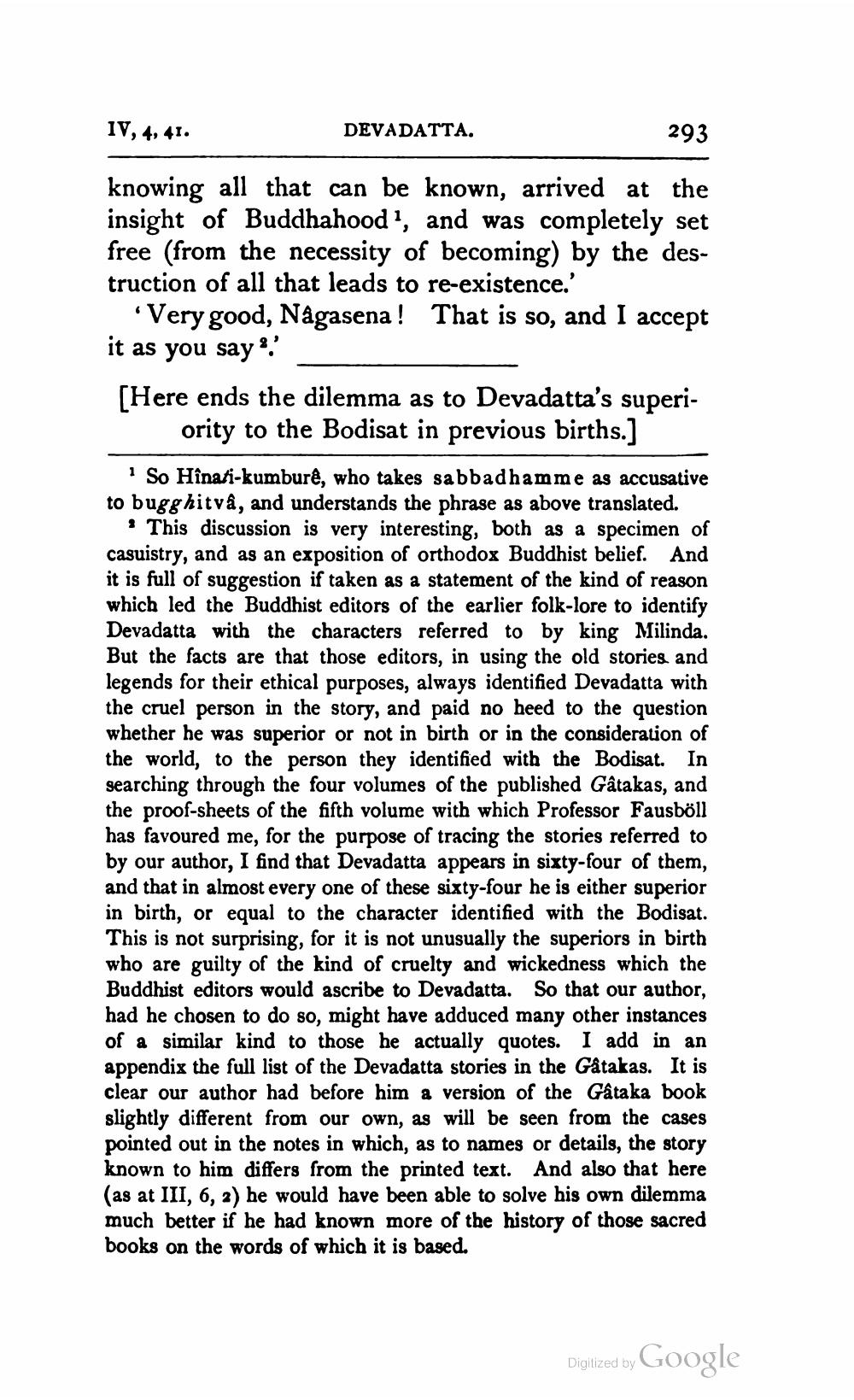________________
IV, 4, 41.
293
knowing all that can be known, arrived at the insight of Buddhahood', and was completely set free (from the necessity of becoming) by the destruction of all that leads to re-existence.'
DEVADATTA.
'Very good, Nagasena! That is so, and I accept it as you say ".
[Here ends the dilemma as to Devadatta's superiority to the Bodisat in previous births.]
1 So Hînati-kumburê, who takes sabbadhamme as accusative to bugghitvâ, and understands the phrase as above translated. This discussion is very interesting, both as a specimen of casuistry, and as an exposition of orthodox Buddhist belief. And it is full of suggestion if taken as a statement of the kind of reason which led the Buddhist editors of the earlier folk-lore to identify Devadatta with the characters referred to by king Milinda. But the facts are that those editors, in using the old stories and legends for their ethical purposes, always identified Devadatta with the cruel person in the story, and paid no heed to the question whether he was superior or not in birth or in the consideration of the world, to the person they identified with the Bodisat. In searching through the four volumes of the published Gâtakas, and the proof-sheets of the fifth volume with which Professor Fausböll has favoured me, for the purpose of tracing the stories referred to by our author, I find that Devadatta appears in sixty-four of them, and that in almost every one of these sixty-four he is either superior in birth, or equal to the character identified with the Bodisat. This is not surprising, for it is not unusually the superiors in birth who are guilty of the kind of cruelty and wickedness which the Buddhist editors would ascribe to Devadatta. So that our author, had he chosen to do so, might have adduced many other instances of a similar kind to those he actually quotes. I add in an appendix the full list of the Devadatta stories in the Gâtakas. It is clear our author had before him a version of the Gâtaka book slightly different from our own, as will be seen from the cases pointed out in the notes in which, as to names or details, the story known to him differs from the printed text. And also that here (as at III, 6, 2) he would have been able to solve his own dilemma much better if he had known more of the history of those sacred books on the words of which it is based.
Digitized by Google




